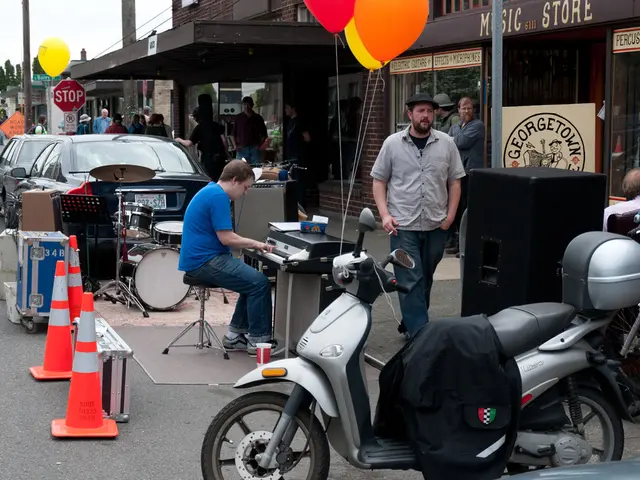Suppression of Anti-Trump Protests at the US Open Exhibits Cowardice and Hypocrisy
US Open Stirs Controversy with Decision to Censor Crowd Dissent Against Donald Trump
The United States Tennis Association (USTA) has found itself in the midst of a storm of criticism after its decision to ask broadcasters not to show any dissent against former President Donald Trump during the US Open final.
The decision, which some view as a capitulation rather than a consistent policy, has been criticized for misunderstanding both sport and democracy. Critics argue that the USTA's move strips the event of its unique character, authenticity, and integrity.
Donald Trump, a fixture at the US Open in the past, was loudly booed on his last visit in 2015. His potential appearance at this year's tournament is seen as a strategy to turn the tennis match into a battleground of grievance.
Internal emails obtained by various outlets indicate that the USTA instructed its television partners to refrain from showing any disruptions or reactions when Trump appears on screen during the final. This decision has been compared to the crowd dissent seen at other sports events, such as booing of Theresa May at the 2012 London Paralympics, Emmanuel Macron at the 2023 Rugby World Cup, and Gary Bettman in the US.
The US Open, known for its democratic and multicultural atmosphere, is being criticized for sanitizing crowd reactions during the final. Melissa Koby, the first Black artist to create the Open's theme art, designed banners and installations that remind of the sport's inclusivity. This year's theme, "75 years of breaking barriers", honours Althea Gibson, the first Black player to compete at the tournament's predecessor, the US nationals, in 1950.
The USTA, however, has defended its decision. After the tournament, the organization issued a press release highlighting record-setting attendance, social media engagement, and food and beverage sales. The US Open was also celebrated for its growth, diversity, and popularity as a pop-culture destination.
However, the USTA's statement about the issue has been considered weak and hypocritical. The tournament has previously televised fan disturbances and drunken buffoonery. The organization's decision to act like a nervous producer of campaign stagecraft is being criticized as a shameful retreat for a sport that prides itself on honesty and clarity.
Trump and his predecessor, Joe Biden, have also been given hostile receptions by sports crowds. Crowd dissent at sports events, such as booing, is considered an expression of civic order, not a breakdown.
As the US Open continues, the debate over the USTA's decision to censor crowd dissent against Trump remains a hot topic. The tournament, which prides itself on its progressive history, faces criticism for its decision and the potential impact it may have on the event's authenticity and integrity.








